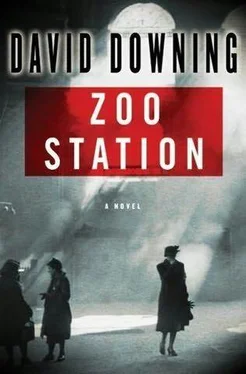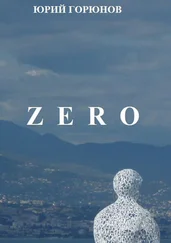David Downing - Zero Station
Здесь есть возможность читать онлайн «David Downing - Zero Station» весь текст электронной книги совершенно бесплатно (целиком полную версию без сокращений). В некоторых случаях можно слушать аудио, скачать через торрент в формате fb2 и присутствует краткое содержание. Жанр: Шпионский детектив, на английском языке. Описание произведения, (предисловие) а так же отзывы посетителей доступны на портале библиотеки ЛибКат.
- Название:Zero Station
- Автор:
- Жанр:
- Год:неизвестен
- ISBN:нет данных
- Рейтинг книги:5 / 5. Голосов: 1
-
Избранное:Добавить в избранное
- Отзывы:
-
Ваша оценка:
- 100
- 1
- 2
- 3
- 4
- 5
Zero Station: краткое содержание, описание и аннотация
Предлагаем к чтению аннотацию, описание, краткое содержание или предисловие (зависит от того, что написал сам автор книги «Zero Station»). Если вы не нашли необходимую информацию о книге — напишите в комментариях, мы постараемся отыскать её.
Zero Station — читать онлайн бесплатно полную книгу (весь текст) целиком
Ниже представлен текст книги, разбитый по страницам. Система сохранения места последней прочитанной страницы, позволяет с удобством читать онлайн бесплатно книгу «Zero Station», без необходимости каждый раз заново искать на чём Вы остановились. Поставьте закладку, и сможете в любой момент перейти на страницу, на которой закончили чтение.
Интервал:
Закладка:
His partner rubbed his chin with forefinger and thumb. “I have, too.”
“I remember,” the first man said. “She was the wife of that guy who got killed by the Reds…”
“The Necessary Sacrifice,” Russell suggested helpfully.
“That’s the one. And she’s your girlfriend?”
“Uh-huh.”
“You’re a lucky man,” the partner said, replacing the photograph and closing the suitcase.
Russell had never heard a more beautiful click. “I know it,” he said with a grateful smile. Suitcase in hand, he walked out through the open doorway, repressing the urge to skip and dance.
The train pulled into Prague’s Masaryk Station at twenty past seven. On the streets it felt more like midnight-they were dark and mostly deserted, as if the city’s people were all at home, hunched over their radio sets. He had never seen Wenceslas Square so empty, even at four in the morning.
The Grand was fully operational though, its multilingual staff and art nouveau fittings a match for any barbarian invasion. Russell had stayed there twice before, once in the late 20s and once the previous September, when Chamberlain and Daladier were licking Hitler’s boots in Munich. He asked the receptionist if anything crucial had happened in the last seven hours, and was told that it hadn’t. Monsignor Tiso, he supposed, was still en route to Berlin.
Russell’s room was on the first floor, at the back. Apart from the lack of a view it seemed thoroughly adequate. After those few moments at the frontier, though, a pigsty would have seemed adequate, provided it was in Czechoslovakia. He dumped the unopened suitcase on the bed and went back down in search of dinner.
The hotel restaurant also seemed a lot emptier than usual, but the baked carp, fruit dumplings, and South Moravian white wine were all delicious. A walk seemed in order, but he reluctantly decided against one-his train left at 11:40 the following morning and he was anxious for the Soviets to collect their papers. The thought of having to dump them in the Vltava was more than he could bear.
He didn’t have long to wait. Shortly before 10:00 he answered a familiar-sounding tap on his door, and found Irina Borskaya anxiously glancing up the corridor. “Come in,” he said superfluously-she had already dodged under his arm. She was wearing the same long, charcoal gray skirt, but a different blouse. Her hair seemed a shade lighter, and this time there was a hint of bright red lipstick on her thin lips.
“The papers,” she said, sitting down in the upright chair.
“It’s nice to see you, too,” Russell said, opening the suitcase. After dumping his possessions onto the bed, he clicked the false bottom open, removed the sheaf of papers he’d picked up in Gaarden, and handed them over.
“What are those?” she asked, as he placed the envelope containing McKinley’s papers on the bedside table.
“A story I’m working on.”
She gave him a disbelieving look, but said nothing. After flicking through the naval dispositions, she reached inside her blouse and brought out a money clip containing Swiss Franc notes. High denomination Swiss Franc notes. “We promised to pay you well,” she said, as if reprimanding him for any possible doubts he might have had on that score.
“Thank you,” he said. “It’s been a pleasure doing business with you.”
“There is no need for the pleasure to end,” she said. “We have other work…”
“No,” Russell said firmly. “We had a simple deal-you helped my friend out of Germany, I brought your papers to Prague. We’re quits. I wish the Soviet Union well, but not well enough to die for it.”
“Very well,” she said, rising from the chair and cradling the papers in one arm. The fact that she had no obvious place to conceal them led Russell to the conclusion that her room was close to his own. “If that is how you feel,” she told him, “then we understand. And we thank you for what you have done.”
Somewhat astonished by the ease with which his resignation had been accepted, Russell opened the door for her.
“When are you leaving?” she asked.
“Tomorrow morning.”
“Then have a good journey.” She put her head out, glanced to the left and the right, and walked off down the corridor in the direction of the stairs. The whole encounter had taken less than five minutes.
Before going downstairs the next morning Russell wrote a short covering letter to McKinley’s editor in San Francisco, explaining how he had come by the papers and offering his own brief summary of their significance. After breakfast in the hotel restaurant he walked around the corner to the main post office on Jind?iљskб, bought and addressed a large envelope, and asked for the quickest possible delivery. “It’ll be gone before he gets here,” the clerk observed, reading Russell’s mind. “On the afternoon plane to Paris,” he added in explanation.
Satisfied, Russell walked back to the Grand, collected his suitcase, and checked out. He was early for the train but he liked Masaryk Station, and he liked the idea of being closer to home.
As it happened, it didn’t matter, because he no longer had a seat. Two carriages of the train, including his own, had been commandeered by President Hacha and his swollen entourage. The Czech President, Russell gathered from discussions with sundry railway officials, had also been “invited” to Berlin, and a heart condition prohibited him from flying. Russell was assured that two extra carriages would be added to the night train, but no one seemed capable of explaining why they couldn’t be added to this one.
Oh well, Russell thought, there were many worse places to spend a day than Prague. As President Hacha and his dicey heart were about to find out.
He left the suitcase in the left luggage, took a tram back to the town center, and spent the next couple of hours ambling down the east bank of the river. The Czech flag was still flying from the ramparts of the famous castle, but for how long? A few days at most, Russell thought, and the city’s residents seemed to agree with him. As he walked back through the old town in search of a late lunch he noticed rapidly lengthening lines at one baker after another. News of Hacha’s trip had obviously spread.
This was it, Russell thought-the end of any lingering hopes for peace. There was no way of presenting this as part of some grand scheme to bring Germans home to the Reich. Hitler had thrown off the cloak. It was no longer if, but when.
The sight of an orthodox Jew on Nбrodnн Street reminded him of Albert. Long gone, he hoped, but what of Czechoslovakia’s 100,000 Jews? What were they doing this afternoon? Crowding the stations, loading their cars-or just sitting tight and hoping for the best, as so many German Jews had done? This orthodox Jew had a bagful of groceries, and seemed in no hurry to go anywhere.
He thought about what Albert had said during the drive to the Gцrlitz, that kindness had become more worthy of note, and more interesting to fathom, than cruelty. It was certainly harder to find.
With darkness falling he sought out a bar, and sampled several different Bohemian beers. Each tasted better than the last. He raised a toast to McKinley’s papers, now hopefully resting in some Parisian sorting-office, and another to McKinley himself. From time to time, over the last six weeks, he had found himself wondering why they had killed the young American. It was the wrong question to ask, he realized. It was like asking why they had killed Felix Wiesner. They might have had, or thought they had, particular motives, but the real reason was much simpler-they were killers. It was what they were. It was, in truth, all that they were.
The cold air streaming through his cab’s broken window kept him awake on his way to the station, but once ensconced in the overheated train he soon found himself falling asleep. The jerk of departure woke him for long enough to recline his seat, and the last thing he remembered was that he should have phoned Effi.
Читать дальшеИнтервал:
Закладка:
Похожие книги на «Zero Station»
Представляем Вашему вниманию похожие книги на «Zero Station» списком для выбора. Мы отобрали схожую по названию и смыслу литературу в надежде предоставить читателям больше вариантов отыскать новые, интересные, ещё непрочитанные произведения.
Обсуждение, отзывы о книге «Zero Station» и просто собственные мнения читателей. Оставьте ваши комментарии, напишите, что Вы думаете о произведении, его смысле или главных героях. Укажите что конкретно понравилось, а что нет, и почему Вы так считаете.












